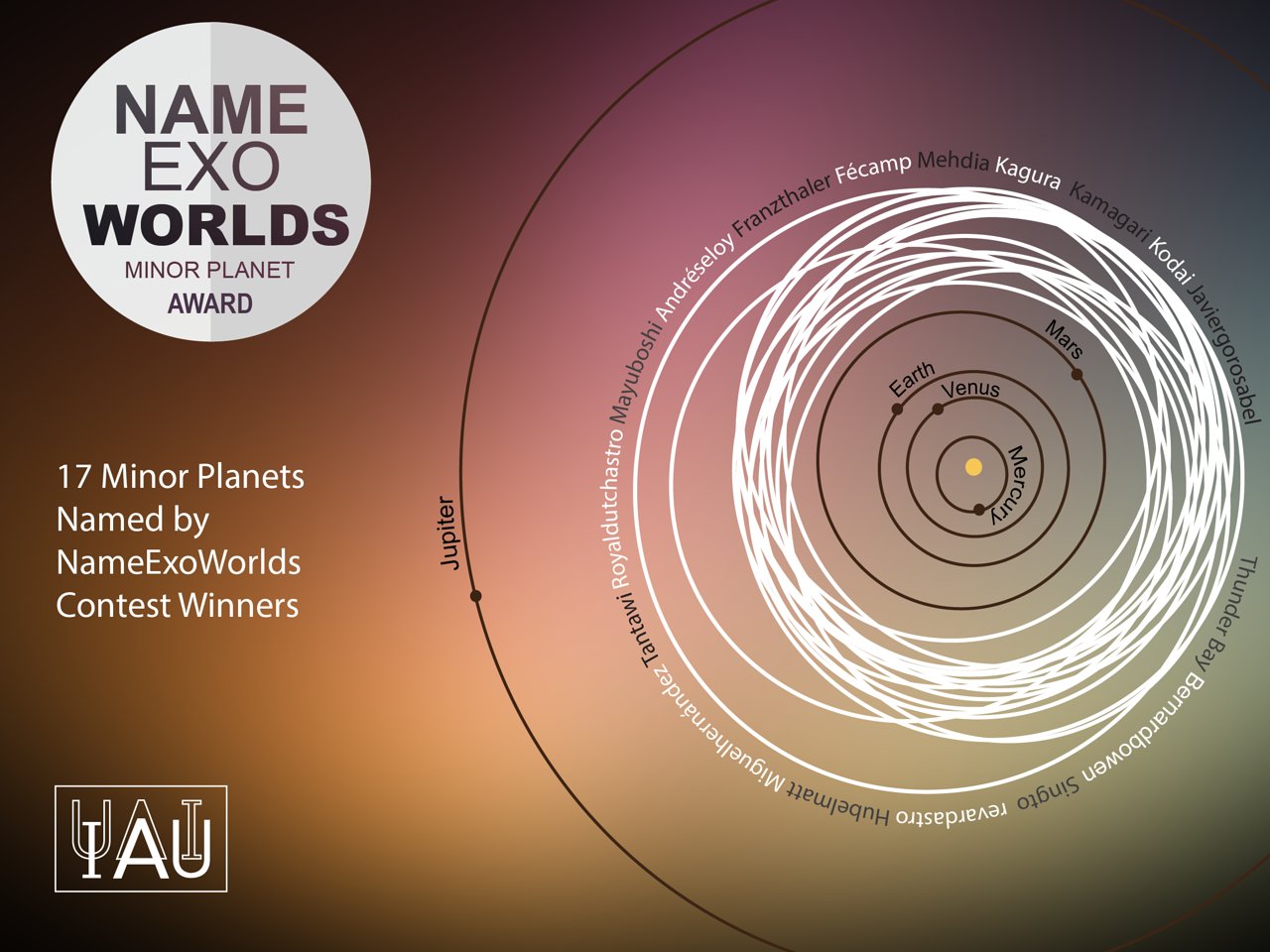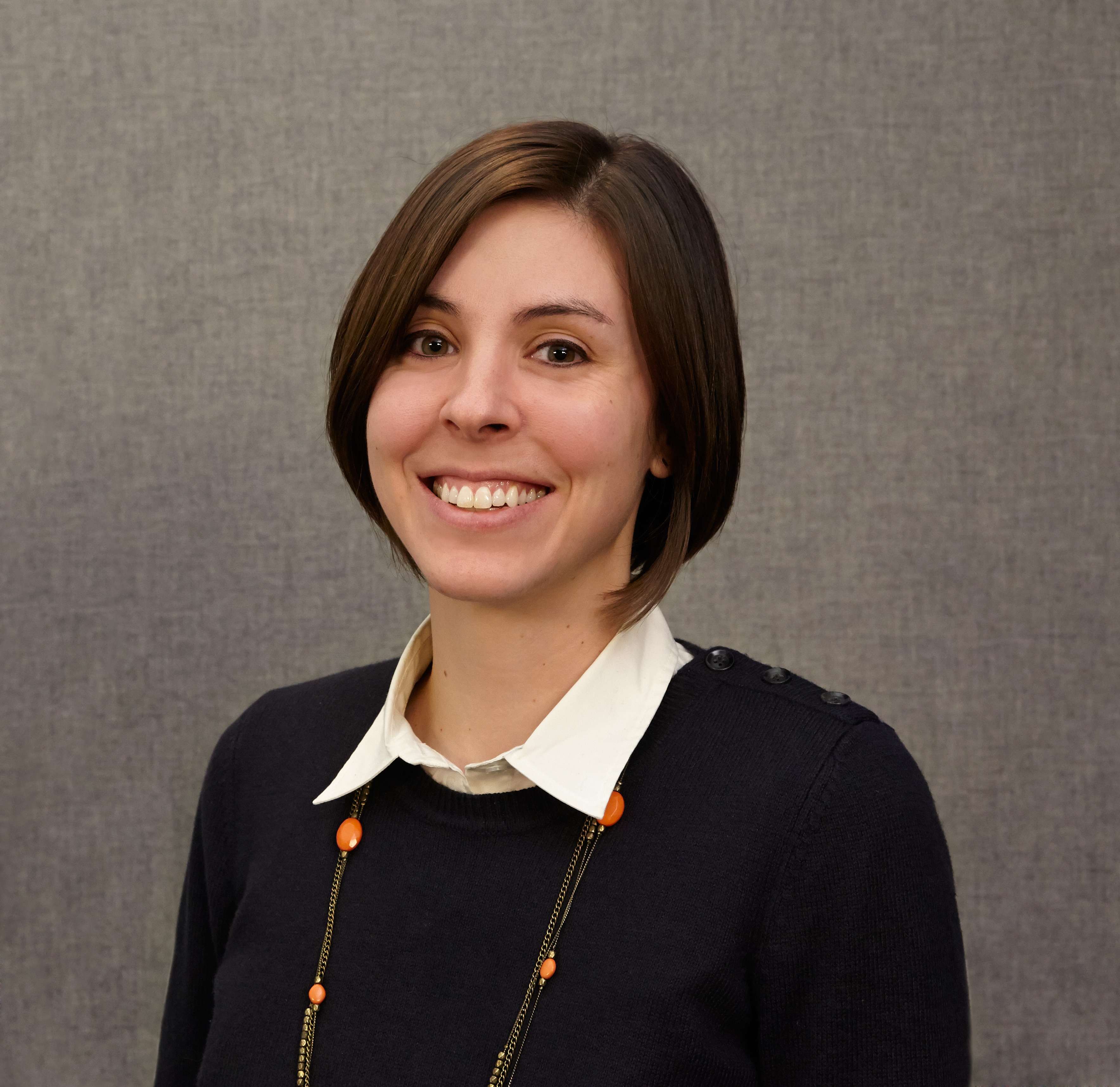Small Solar System Bodies Named by Citizen-Science Groups

Citizen scientists have given new names to 17 minor planets — small objects including asteroids — in Earth's solar system, according to the International Astronomical Union (IAU).
The list of new names includes Thunder Bay, a municipality in Ontario; and Kagura, the name of an ancient Japanese Shinto dance. Minor planets include dwarf planets like Pluto and Ceres, asteroids (but not comets) and most Kuiper Belt objects that live in the region of the solar system beyond Neptune.
The new names were proposed by citizen-science groups (such as community observatories or astronomical societies) that won a contest hosted by the IAU in 2015 to name a handful of planetary systems orbiting stars other than the sun. For that contest, members of the public were allowed to vote on the names proposed by citizen-science groups, although the IAU made the final call on which names won. The IAU is the officially recognized authority for naming objects in space.
The 17 minor planets are now named for a diverse group including astronomers, educators, authors, poets, dances and the locations of astronomical organizations. Some of those names include the following: Andréseloy, after Andrés Eloy Martínez (born in 1963), a Mexican astronomer and science popularizer; Miguelhernández, after Miguel Hernández (1910-1942), a poet who fought for peace during the Spanish Civil War; and Brevardastro, a merger of "Brevard" and "astro," referring to Brevard County on the east coast of Florida, home to the Kennedy Space Center and known as the Space Coast.
"The IAU is delighted to see the involvement of amateur astronomers and of the public in the naming of newly discovered worlds, which, in many respects, puts our own little planet in perspective," said Piero Benvenuti, IAU general secretary, in a statement from the organization. "We are happy that the proposers are now rewarded with a ‘celestial’ prize, forever written in the sky! The success of the initiative stimulates the IAU to propose similar open competitions in the future."
Follow Calla Cofield @callacofield.Follow us @Spacedotcom, Facebook and Google+. Original article on Space.com.
Breaking space news, the latest updates on rocket launches, skywatching events and more!

Calla Cofield joined Space.com's crew in October 2014. She enjoys writing about black holes, exploding stars, ripples in space-time, science in comic books, and all the mysteries of the cosmos. Prior to joining Space.com Calla worked as a freelance writer, with her work appearing in APS News, Symmetry magazine, Scientific American, Nature News, Physics World, and others. From 2010 to 2014 she was a producer for The Physics Central Podcast. Previously, Calla worked at the American Museum of Natural History in New York City (hands down the best office building ever) and SLAC National Accelerator Laboratory in California. Calla studied physics at the University of Massachusetts, Amherst and is originally from Sandy, Utah. In 2018, Calla left Space.com to join NASA's Jet Propulsion Laboratory media team where she oversees astronomy, physics, exoplanets and the Cold Atom Lab mission. She has been underground at three of the largest particle accelerators in the world and would really like to know what the heck dark matter is. Contact Calla via: E-Mail – Twitter
